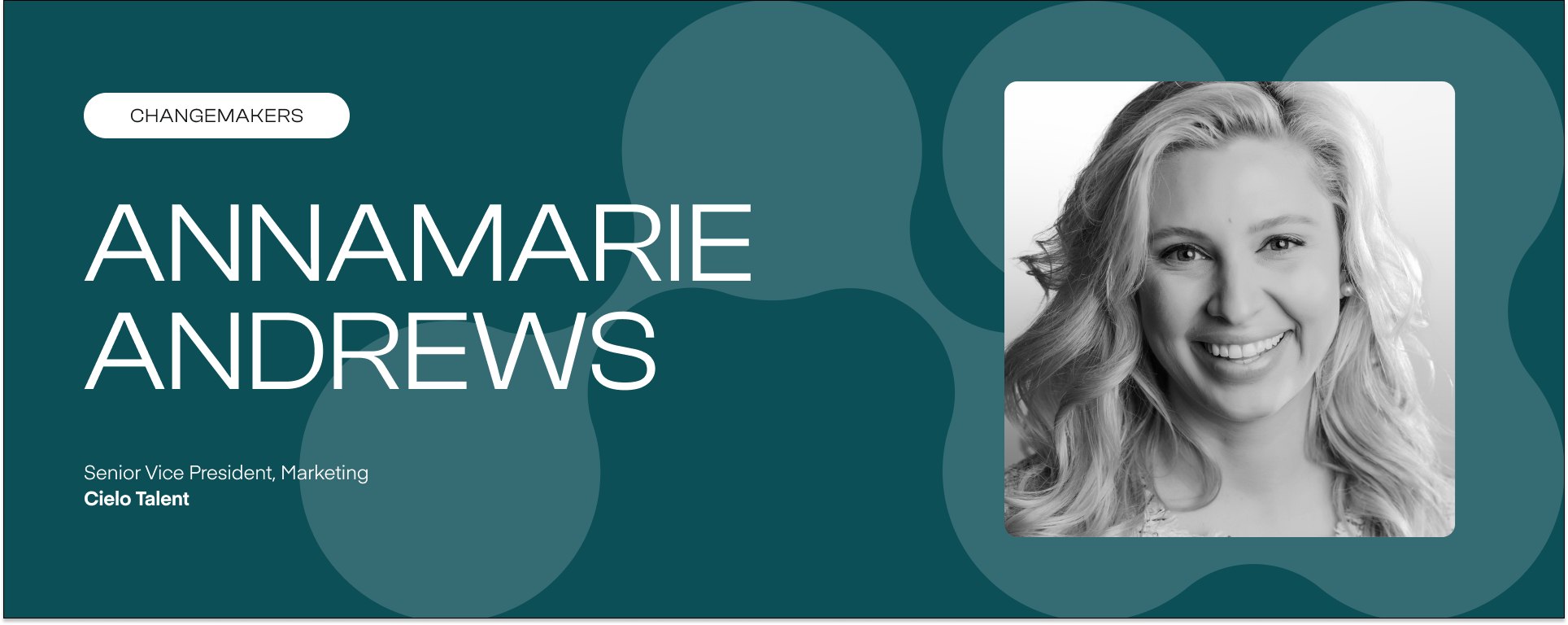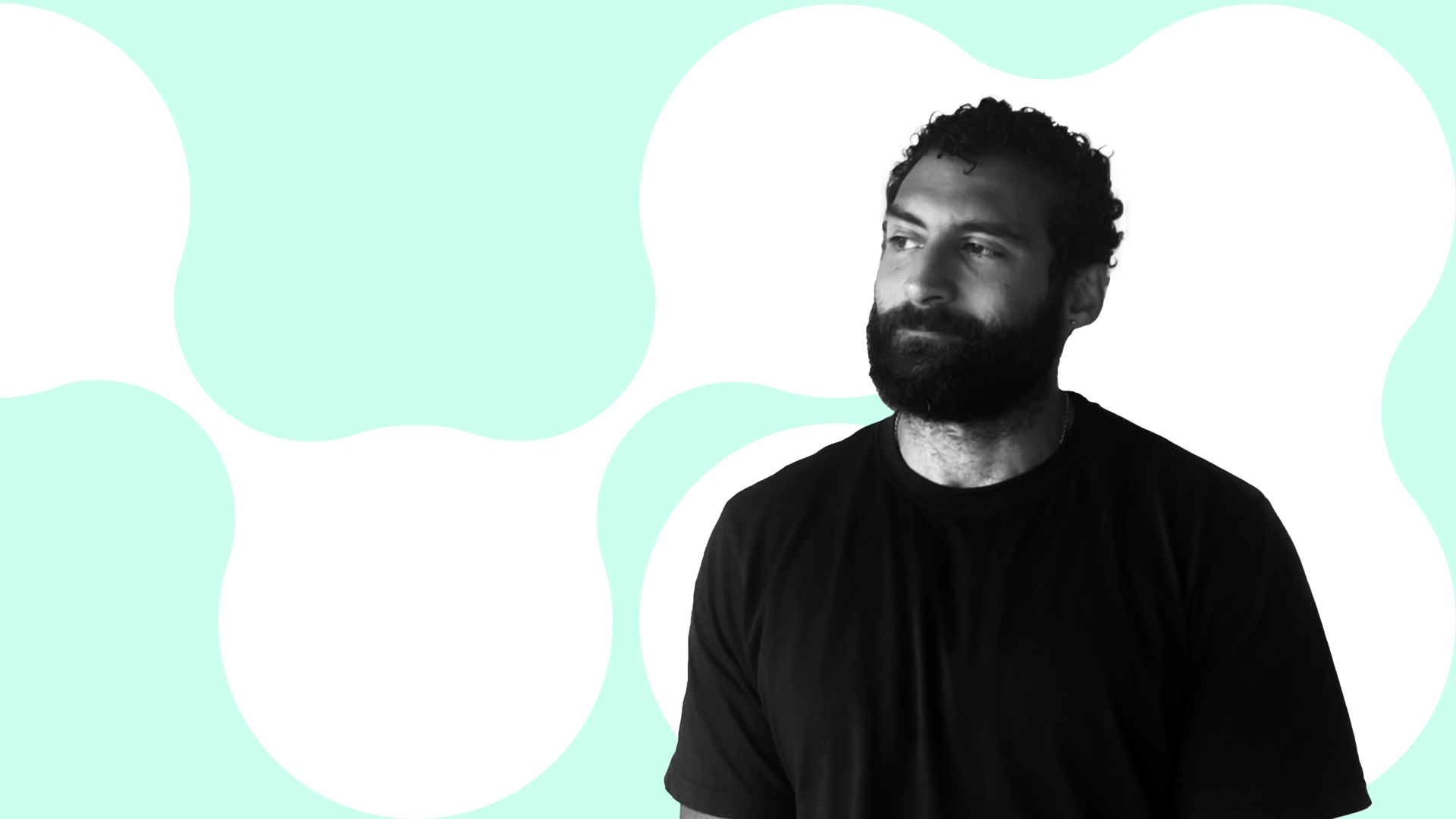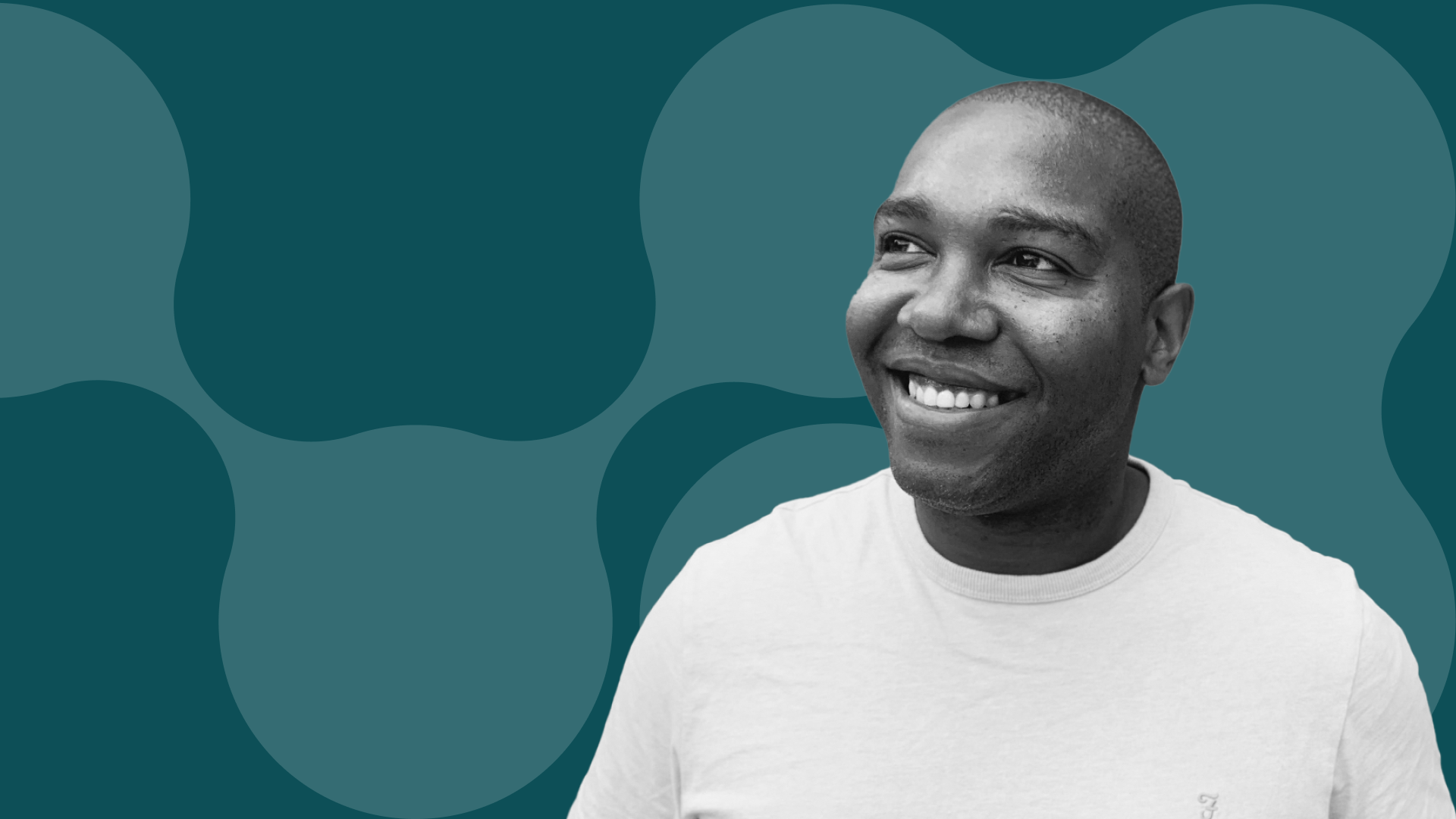There are no future facts: How Cielo's SVP of Marketing ditched hot takes for 2050 insights
Through 10-year brand studies, future-proofing strategies and human-first storytelling, Annamarie Andrews is showing marketers how to break free from industry noise and drive growth.

Tell us about yourself.
I'm Annamarie Andrews and I lead marketing for Cielo. Cielo is a global talent acquisition partner and we're really here to “make the world of work WORK better”. We partner with the world's largest employers to advise, enable and deliver on their talent strategy.
When I think about the role of marketing in our business, there's never been a more challenging juxtaposition between how humans want to work and how work shows up in their life, and how businesses want their employees to be present in their enterprise. The role of marketing at Cielo is to really ensure that Cielo shows up as this guiding light and voice to help organisations, in this context, engage and earn the talent that they need for businesses to thrive.
We work to do that through leaning into storytelling and we have a fun opportunity to do that because we're in the human space, we're in the human resources field. While we have services and tech as part of our offering to the market, I like to say as a services business, our people are our product, our people are our brand. I think it allows us to think about storytelling in a different way.
One of the journeys that we've been on is by flipping product-led on its head and recommitting ourselves to putting clients as the hero of their own stories, versus focusing first and foremost on how our product solves a challenge. Instead, we ask: what are the opportunities that our clients are facing and how does Cielo step in as an expert and advisor to guide someone's journey?
How do you see your role as a marketer in driving broader industry or sector change within your space?
One of the things that so many of us as marketing leaders are looking to solve for right now is what does good look like in terms of exceptional marketing and storytelling in a world that is, I would say, plagued by the ease of AI-generated content? I think it's really creating a new challenge and opportunity for B2B marketers, especially for those of us that treat content as our currency - our offer of value to current and future buyers.
The change that I want to drive and strive for is using AI for good. So AI is this tool to enable more impactful, relevant, hyper-personalised experiences and that really is the nirvana for delivering a great B2B brand. But what we can't lean into is AI as a trap and excuse for quantity being a quality measure. Just because you can push out more of the same doesn't mean that you should. It's a watch out to not get sucked into the vanity-based metrics.
I always say we want Cielo to be the best answer on the Internet when someone's trying to solve a talent challenge, but just because we can spin up a new SEO and AEO optimized article in two days doesn't mean we should, because all we're doing is adding more noise into an already complex, challenging space. Our intent is for Cielo to show up as a thoughtful and strategic thought partner. It's actually detrimental to our brand to push out content that is noise versus content that's starting and driving a new, valuable conversation.
It's actually detrimental to our brand to push out content that is noise versus content that's starting and driving a new valuable conversation.
Something that has really stuck with me around compelling storytelling is a framework for how you stand out. It has to be grounded in ownable insights. Because if we're all relying on the same analyst report, the same AI-generated summary, someone else’s research there is nothing that you can do to be unique in your story. Actually, if you go back to speaking directly to the humans with the story, to your client and to your prospect, to the end user of whatever it is you're selling, you can uncover a unique human truth or element that then you can utilise to your benefit to be exceptional and different. Without that, there's nothing you can do that's going to make you stand out.
What's the most provocative idea or strategy you've implemented in your B2B marketing, and what was the response?
It's actually related to measurement. I think especially in our global geopolitical and economic market right now, which is just wildly uncertain, it's not uncommon for marketing to feel the push to watch our spend and to focus on pipeline impact first and foremost. But I'm always the business leader shouting that brand leads demand. The challenge is measuring it and proving it. Ad impressions will never be enough and in fact get you kicked out of the room if you want to try to tell someone that's valuable.
Over the last 10 years, we've been running a longitudinal study to assess the strength and impact of Cielo's brand. We look at three key measures that are directly related to business impacts, because for me, brand strength means being the preferred and obvious choice, it means client loyalty and it reflects in the ability to ask for premium pricing.
The three things that we look at: first is aided awareness, because no one is buying from someone that they don't know. Measuring unaided awareness frankly, it's just a waste. The second one is brand affinity. Even in B2B you cannot underestimate the importance of being liked. Buying from someone once is fine, but buying from someone again is everything. So that affinity is critically important.
Even in B2B you cannot underestimate the importance of being liked
Finally, functional association is the third measure that we look at and track, because what good is it if someone knows who you are if they don't have the right context on what that means for them? This commitment to this 10-year longitudinal study has been a way for me to be able to speak to the business about how a brand can be a driver of the business It's also turned into this unintentional market study because in addition to getting feedback on Cielo, we're actually capturing the vibes of our buyers every two to three years on how they're thinking about the problems they're solving and considering their purchases.
Can you share an example of how you've used storytelling to shift perceptions in your industry?
Over the last two years, Cielo's gone down this wild journey to break out of the sameness and the parity that has been happening in this broader HR and services tech space. What we saw was the PR and content engine of our market overplaying the same topics over and over again. The drama around return to office, the great resignation, the quiet quitting - all of these things that were easy to capture attention in the moment, and then we just saw everyone piling on and breaking it apart in a different way, but still on the same topic. We realised there was literally no way to stand out if we kept playing that same game. We needed a new game and new set of rules.
What we decided to do from a storytelling standpoint was instead of focusing on the burning topic for now, where there was no white space that we could win, we threw the anchor forward and looked out to what could be the future challenges of 2050. We doubled down on the concept of future-proofing, which is often what we talk to our clients and buyers about. When you decide to work with Cielo, our commitment to you is we're going to help you with the agility that you need today and tomorrow.
We set up a podcast series that was all about the future world of work and its potential, opportunities, and challenges out in 2050. One of the fun phrases that we got from that project was "there are no future facts." It's actually a really fun place to play in terms of content strategy, because what you're doing is bringing your expertise and ideas within the ”what could be” of the future, but it still connecting it back to the challenges or the opportunities that we're striving for today.
The other shift was our intent to move away from using the same short list of industry analysts and influencers that were so common in our market and with our buyers. We didn't want to do just another white paper or webinar with the same human that continues to have their face with everyone else’s brand. We found it much more fun and fascinating to go to anthropologists, futurists and researchers that brought a completely fresh perspective and a new story to tell versus the people that have rightly earned credibility in the space but weren't there to share a new or different story.
We've run two seasons of it and activation is a balance of organic posting and sharing and a robust multi-channel paid campaign. It's great because it makes the content work harder for us. There's the initial organic launch and then all of the work that we do around each episode and season to continue to drive and utilise it for all our diverse paid channels. The other really lovely thing about having a content strategy that's based on what could happen in 2050 is that it's also evergreen. It never gets old because we're not talking about a hot topic, we're talking about the future.
In your view, what do you think is the biggest change needed in B2B marketing right now?
We need to stop waiting to steal trends from B2C brands. In the end, we're all just humans selling to humans to make an element of someone's life better and easier. I think in B2B buying decisions, someone's actually putting their career on the line with the purchase. So it's significantly more intense than a purchase as a consumer. As B2B marketers, we can do a better job of leaning into the emotions of our offerings. Gone are the days where we focus on the cold hard packaging and enterprise sell. Now it’s about being more connected to the emotions and being more cinematic in the way that we share our story.
How do you encourage your team or organisation to think boldly and embrace change in their marketing approaches?
One of the things that we're working on now, and it is easier said than done, but it's to drop the nomenclature and the buzzwords and just talk like a human in our marketing materials, in our client meetings, in our sales pitches. There's still work and opportunity that we have in marketing to continue to push our tone of voice to be more colloquial and less contrived. No one wants to be sold or marketed to. I think many times the shinier you make it sound and feel, the harder it is to break down those barriers between someone who has a pain point and the ways we want to help them solve it.
You want a brand that's easy to remember, easy to understand, and then ultimately easy to buy from.
What do you think in one word makes B2B marketing changemaking?
Potential.
I think if you're in the right organisation with the right leadership, now more than ever is the time to just try something new and different. Status quo is not an option, so just go for it.
What is your one piece of advice to future change makers on how to be more effective in B2B marketing?
Business leader first and marketing leader second. Being an expert marketer means being an expert on the market. I think getting closer to whether it's product, clients, prospects, competitors - your ability to be effective in creating a strategy really hinges on your ability to understand buyer motivations better than anyone else.
Changemakers spotlight innovative B2B marketing leaders who are driving industry transformation, where we explore bold strategies, disruptive ideas and the power of marketing. Meet more Changemakers here.
More Insights from alan.
To re-form your industry, we must re-form ours first. From our visceral point of view on creativity to our incisive approach to strategy, delve into our provocative thought-leadership on how we’re aiming to subvert B2B’s status quo.




